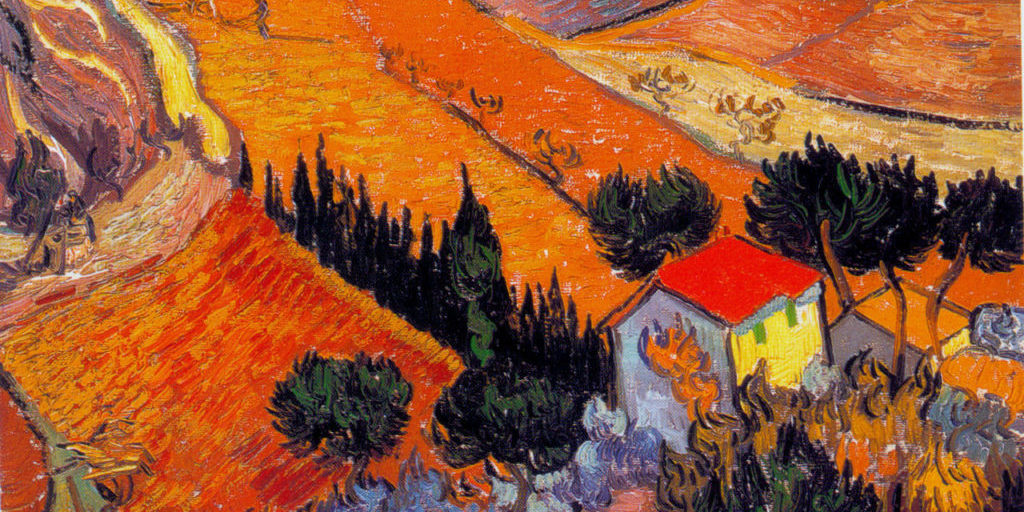
Why Pastors Should Engage Basil of Caesarea
Division in the Church, widespread doctrinal confusion and ignorance, a sometimes hostile government, a sexually permissive culture, scores of Christians marginally committed to the Gospel, the suffering of the poor—these challenges that confront today’s pastors are the very ones that Basil of Caesarea (330-379) faced. How did he handle them? What can we learn from him?
Gospel Guidance
The first thing to say is that Basil was not sufficiently attuned to the problems of his time before his own “conversion.” He was born into a serious Christian family and never strayed far, but he had his sights on a secular career. At the urging of his sister Macrina, who herself had decided to live a life strictly according to the Gospel, Basil woke up, renounced his worldly ambitions, and dedicated himself to a life of prayer, penance, and contemplation. He made the Scriptures the center of his life, and strove to live a life completely in accord with its teaching. He made the Scriptures the center of his life, and strove to live a life completely in accord with its teaching. Click To Tweet He drew up a set of texts from the New Testament together with short explanations and tried to live them out. The result, The Morals, was what one might call a rudimentary monastic rule. Here Basil sought the guidance of the Gospel on every aspect of life: how to sleep, how to pray, how to dress, how to conduct oneself with others, superiors and colleagues, how receive the sacraments, how to counteract sin in oneself and in the community.
Living the Gospel made Basil more sensitive to problems in the Church and in society and equipped him to make a contribution to their solution. Unlike many ascetics, Basil did not withdraw from the Church and the world but engaged them. He was ordained a presbyter to help the bishop of Caesarea and eventually became a bishop himself. As both a presbyter and a bishop he lived in community with others who likewise strove to live the evangelical life. They would regularly meet to address questions that arose about how they should apply the gospel to this or that issue, whether it be doctrinal, moral, or spiritual. Thus, these monastic conferences animated so much of Basil’s work.
Doctrinal Clarity
We can see his efforts to clear up doctrinal confusion in this light. Both of his major polemical works, Against Eunomius and On the Holy Spirit, emerged from an ascetic context. The monks were deeply concerned with the question of the divinity of the Son and of the Spirit—nothing was more natural for them than to seek to know accurately the God of their longing. Eunomius had cut off access to the Father when he taught that the Son was a creature, and the Spirit-Fighters, who had denied the divinity of the Holy Spirit, destroyed our connection with the Son and the Father. In both cases, they made genuine communion with God impossible, for if the Son and the Spirit were outsiders to this communion, then so must we be. These works of Basil are little more than a refutation of his opponents’ interpretation of Scripture and his own attempt to articulate Scripture’s teaching.
While his method is complex as it gets worked out in argument after argument, it rests on some very simple foundations. Both Eunomius and the Spirit-Fighters fixate on a few texts and fail to take a wide reading of Scripture. They ignore some key texts, and so fail to achieve an interpretation that does justice to the whole teaching of Scripture. The Eunomians, for example, hit on Acts 2:36, “God made him Lord and Christ” but fail to appreciate Jn. 14:9, “He who sees me sees the Father.” The Spirit-Fighters argued that the Holy Spirit must be inferior because he is a gift (e.g., Acts 2:38), and the gift cannot be equal to the giver, but Basil offers text after text whose force they ignore. Basil did not see his more balanced reading of the Scriptures as something fundamentally new. Rather, such a reading was demanded by the Christian tradition that he received and wished to hand on.
Living a Worthy Life
Basil’s personal devotion to living a life according to the Scriptures, to living a monastic life, informed not only his handling of doctrinal division, but also his engagement with the wider culture as well as the Christians in his own congregation. On very obvious point here is that his dedication to Scripture was one of the qualities that made him a wonderful preacher. Basil’s sermons still today often strike the heart. The theological and moral power of his sermons on creation remain noteworthy. Basil’s basic thesis is that God has made the whole physical world, including the body of man, as a set of signs that point man toward God. It is a “book” in which we can “read” about God and how to live a life worthy of him. Some of Basil’s examples may need up-dating but the lesson is unmistakable, and certainly contemporary Christians can benefit from a clear indication of the place of the physical world in the providence of God.
Among Basil’s many great sermons, those he preached during the famine of 368 stand out. He summoned all of his considerable rhetorical power to deliver an invective against the rich who had been hoarding grain while their fellow Christians starved. There is no more powerful example from the early Church of the social demands of the Gospel, no more stirring appeal for mercy and love among Christians. And for Basil, this was not merely a matter of words: he himself and his community put this Gospel into impressive action. They built, essentially, a hospital, a place to welcome strangers and to care for the sick and the poor.
One of the fascinating features of the life of Basil is that we get to see a concrete example of what can happen to a man and to a community when the commandments of the Gospel are kept. Basil’s devotion at first did not extend much beyond family and a few friends, but his evangelical way of life held great appeal and wide influence. The seed of the Gospel had grown and flowered. Basil must have felt overwhelmed by the challenges facing the Church and society in his time, but in the end the solution was very simple, or at least it began so: he need only live the Gospel.

